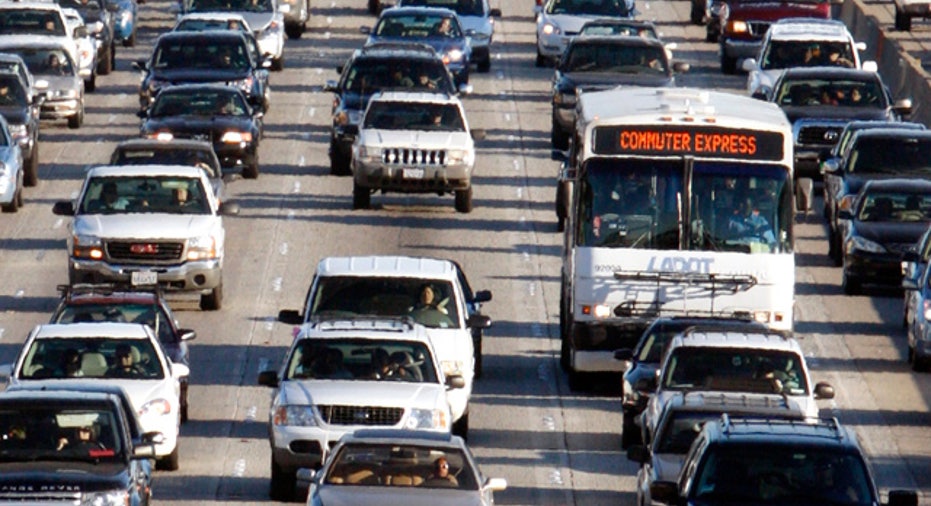Your Own Personal Breathalyzer

Are you OK to drive, or should you call a cab?
If you make the wrong decision, you may end up in jail or worse. You will meet lawyers. You will wear out your checkbook. And you will flinch when the car insurance bill comes.
Or you could buy your own personal breathalyzer and blow.
Devices cost $3 to $300, and their accuracy varies almost as much. The wrong device is worse than useless if it puts a drunk behind the wheel.
Yet more and more people are slipping one into their glove compartments. According to Wintergreen Research, sales of breathalyzers hit $284.6 million in 2011, and they forecast that number will climb to $3.2 billion by 2018 as prices fall and accuracy improves. In fact, French law already requires that all drivers carry one.
A guide, not a guarantee
In the end, the only number that counts is the one on the police officer's device.
A first-time DUI can cost thousands in court fees and will easily double your rates, says Penny Gusner, consumer analyst with CarInsurance.com. A second DUI may send your rates up 300% -- when you get your license back. (See "Calculate your limit: Avoid a DUI disaster.")
A final caveat: Blowing a number under the legal limit is not a free pass to drive. Impairment is more than just a breathalyzer number, and it is possible to be under the legal limit and still be arrested.
According to Gusner, the insurance premium jump for impaired driving is going to be very similar to a DUI conviction.
"I would give myself a wide, wide margin of error," Gusner says.
A long way from the Drunkometer
While alcohol intoxication is defined as a blood alcohol concentration (BAC), testing blood is just not feasible when you are out on the town.
The modern, portable method of measuring breath alcohol concentration emerged in 1954, when Robert F. Borkenstein, a forensic scientist with the Indiana State Police, perfected the Drunkometer.
Breathalyzers work because alcohol shows up in the breath. It is not digested, or even chemically changed in the bloodstream. While the police use desktop spectrophotometer units at the station to collect a reading that can be introduced in court, they use personal breathalyzers out on the road.
If you're shopping for personal use, four types are available:
Fuel cell: Allen D. Porter, president of DrinkingAndDriving.Org, says fuel cell breathalyzers closely mirror what law enforcement officers in the field. The fuel cell produces an electrical charge when it interacts with alcohol that can be precisely measured and translated into a BAC reading.
Prices start around $100, and high-end models run over $300.
Semiconductors: Breathalyzers that use a semiconductor as a sensor range from strictly novelty items to models that rival fuel cells in accuracy. The type of semiconductor material is what separates the toys from the real thing, Porter says.
Silicon oxide-based models are more expensive, ranging from about $85 to $250, but are considered more accurate.
Crystals: These are single-use disposable units. You simply squeeze the unit to activate it and then blow into it. The crystals will change color if you are blowing over a set BAC level. According to Porter, they are popular with the military and fairly accurate.
These disposable units are priced around $3 but can be cheaper in bulk.
Keychains and phone apps: Breathalyzers that cost less than $50, come on a keychain or connect to your iPhone are best considered novelties for entertainment purposes. (Some apps, for example, track your eye movements.)
Personal breathalyzers are available at a variety of stores. Amazon carries a wide selection, as do Best Buy, Target and even Wal-Mart. Specialty websites such as Alcotester.com offer every brand under the sun.
Finding the right breathalyzer
Regardless of the type you choose there are a few things you should look for in a personal breathalyzer.
- FDA certification: The Food and Drug Administration considers breathalyzers to be medical devices and certifies them as safe after testing. Any breathalyzer that lacks FDA certification is sure to be inaccurate.
- A mouthpiece: Accurate breathalyzers have a mouthpiece that is directly attached to the breathalyzer. This ensures that the sample is not contaminated by smoke or other pollutants in the air. The mouthpiece should be removable and washable. Most models come with extra mouthpieces.
- Accuracy rating: A breathalyzer is only useful if it is accurate. The highest accuracy ratings run around +-0.005. Most experts recommend a breathalyzer with an accuracy rating of at least +-.01.
- Calibration: An accurate breathalyzer will require calibration at some point in its lifetime, with the exception of disposable units. If it doesn't require recalibration by its manufacturer, it may not be accurate enough to rely on. Fees range from $20 to $50. Currently there are models on the market that use a replaceable sensor module, eliminating the need for factory calibration.
Experts say you should wait at least 20 minutes from your last drink or cigarette to check your BAC. This will give the most accurate rating.
They also advise some practice in the security of your own home to make sure you know how to use the device before trusting it after drinking.
The consequence for poor accuracy? A highly accurate, state-sponsored model you'll have to use every time you turn the key. ("New DUI strategy: Your car won't start.")
The original article can be found at CarInsurance.com:Your own personal breathalyzer



















